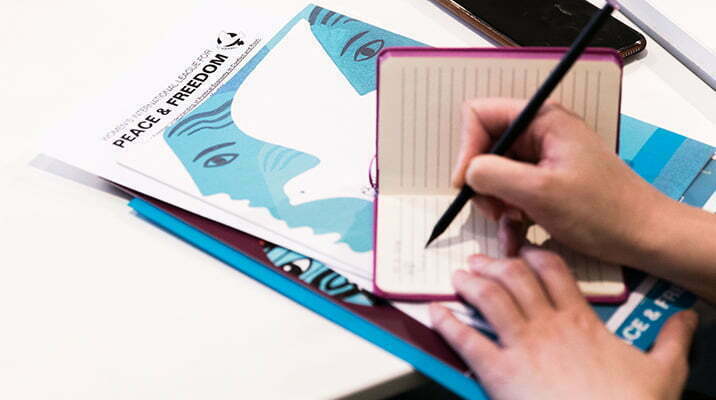The Iraqi civil society was unrecognised during Sadam Hussein’s era, civil society organisations were either incorporated in the Ba’ath associations or completely repressed and in some cases criminalised by law. Activists were either detained and abused or exiled and had little to no influence on the political sphere of the country.
Women organisations were paralysed and hijacked by the Ba’ath party’s “Women Association”. The association served as a tool of repression, using women to emphasise a fake progressive image of an authoritarian regime and later on becoming means to crowd mobilise women to serve oppressive agendas.
Two ironic incidents showed the level of manipulation that women faced under the Ba’ath rule. In the late seventies, Iraq was taking steps towards an industrial boom that entailed full use of every possible manpower. The Women Association lead a large campaign to mobilise women and send them to work, it was called “the Guigoz campaign” referring to the baby milk formula to be used as an alternative to breast feeding so women can go to work as soon as they deliver. The campaign did work, babies were put on Guigoz and women sent to work and contribute to the industrial boom.
Soon after, Sadam Hussein invaded Iran starting what was later known as the deadliest conventional war ever fought between regular armies of developing countries. The Iraqi casualties of the 8 years war are estimated at 105,000–200,000 killed, about 400,000 wounded and some 70,000 taken prisoner.
In preparation for further aggressions, Sadam used the Women Association again but to campaign against baby milk formula this time, the purpose was to bring women back home to increase birth rates and balance the massive human losses of the war. The campaigns advocated that baby milk formula is deadly and that the highest virtue of a woman is to have many children and raise future soldiers. At one point, the head of the Women Association declared in a speech to the public that she is pregnant to serve the higher sake of the nation.
Years later, Iraqi women were used again as one of many excuses of the American/British invasion of Iraq, calls that the invasion aimed to “liberate Iraqi women” were no different to the former or later manipulation and abuse of Iraqi women to implement political agendas.
After the overthrow of Sadam Hussein regime in 2003, the Iraqi civil society sector began to emerge, and has since grown exponentially. Today the number of civil society organisations is estimated to be as high as 10,000 with over 2000 NGO’s registered since 2011 according to the Iraqi NGO Directorate.
The impact of the growing civil society became undeniable and women organisations with their skilled activists and undefeatable longing for liberation took the lead in this growth showing great commitment, skills and visions.
Despite the massive atrocities that took place in Iraq after the invasion in 2003, the ever deteriorating security situation and the failure of the state to protect civilians from the overwhelming targeting by armed groups, women still found a space to advocate for their rights and call for effective participation.
Their efforts resulted in the introduction of a 25% quota system for parliament members which resulted in a significant women presence in the parliament and local councils. However, the turbulent political situation meant that political parties are abusing women MPs to apply their party’s agenda.
The limited understanding of women concerns by parliamentarians (including women parliamentarians) emphasised this outcome and resulted in a clear need to raise awareness of parliamentarians on women concerns, the state international obligations related to them, and their role in peace and security. This is one of the many challenges that we all have to deal with in the near future.
There is so much to be done, but having seen what the great women of Iraq could do in a decade, standing on their own in the face of militarisation, aggression, patronisation and patriarchy, I am positive that my generation will witness the very end of women manipulation in Iraq and beyond.





